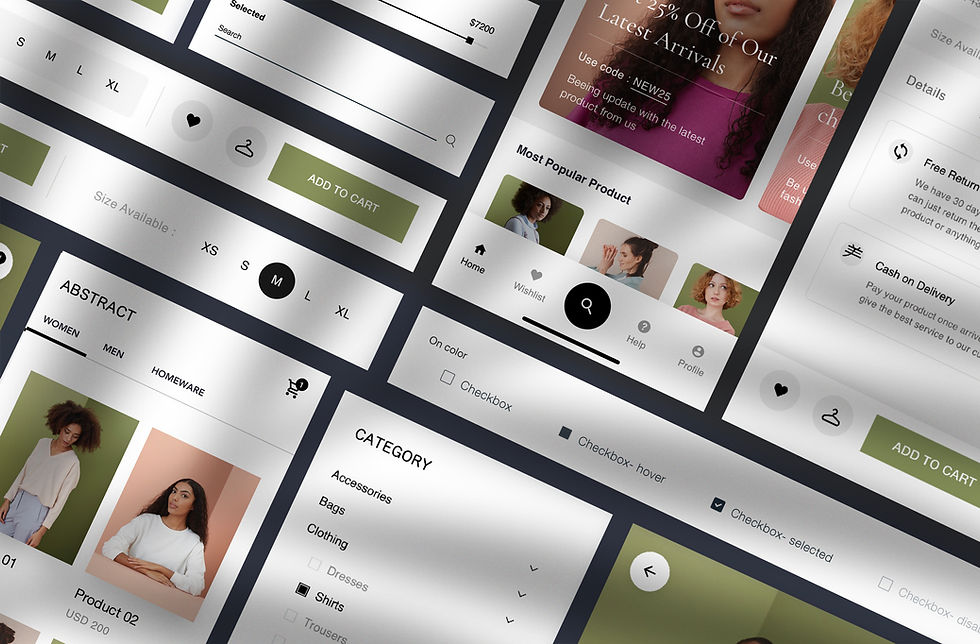What Makes a Website Really Good? Hint: It's UX Design
- Oct 12, 2023
- 3 min read
Whether you run an e-commerce platform, a personal blog, or a corporate site, your online presence plays an important role in your overall success. But what sets a winning website apart from the rest? It's the user experience (UX). Here are 7 reasons why understanding user experience on your website is crucial.
Initial Impressions Matter
Imagine stepping into a physical store that's chaotic, disorganized, and difficult to navigate. Most likely, you'd turn around and walk out, never to return. The same principle applies to websites. Your website is usually the first point of contact users have with your brand. If their initial experience is perplexing or frustrating, they are likely to click away and explore other options.
Turning Visitors into Superfans
User experience plays a pivotal role in retaining and engaging website visitors. If
your website is user-friendly, intuitive, and offers valuable content or services, users are more likely to stay longer, explore more pages, and return in the future. This engagement can lead to enhanced customer loyalty and repeat visits.
Optimizing Conversion Rates
For businesses, one of the primary goals of a website is to convert visitors into customers or leads. An exceptional user experience can significantly boost your conversion rates. Whether it's making a purchase, signing up for a newsletter, or filling out a contact form, a website that guides users seamlessly through the process is more likely to convert them into valuable actions.
Did you think about Mobile Accessibility?
We can do anything we do on our desktops, laptops and tablets on a phone and the reality is... people prefer it! A mobile-friendly website is not a nice-to-have; it's a necessity these days. If users have a poor experience on their mobile phones due to slow loading times, awkward navigation, or unresponsive design, they will swiftly move on.
Boosting Search Engine Visibility
Search engines like Google consider user experience a crucial factor for website rankings. If your site is slow, hard to navigate, or filled with low-quality content, it will likely rank lower in search results. Therefore, optimizing your website's user experience can also improve its visibility in search engine results pages, leading to increased organic traffic.
Brand Perception
A website's design and functionality reflect on your brand's reputation. A well-designed, user-friendly site communicates professionalism and trustworthiness. Whereas, a poorly designed or frustrating website can make your brand appear unprofessional and untrustworthy. Users are more likely to do business with a company they trust and perceive as credible.
Feedback and Continuous Improvement
Pay attention to your users experience and collect all the feedback! Remember you can continually enhance your website and this will be an ongoing project sometimes. Keep an eye on user comments, conduct surveys, and analyze website analytics to identify areas for improvement. This ongoing process of refinement can lead to a website that evolves with your users' needs.
If you've made it this far in our blog post, the most important thing to take away from all this is that you're designing the website for the users and not yourself. It doesn't matter how you think your website should be displayed for your clients or how you think certain content should be written - if your users doesn't understand where to find information, they're hitting the back button on your website.
If you want to learn more about website design and how to optimize your website to it's full potential, reach out to us for a free design consultation or book a 30 min website audit with us at hello@designhour.ca


